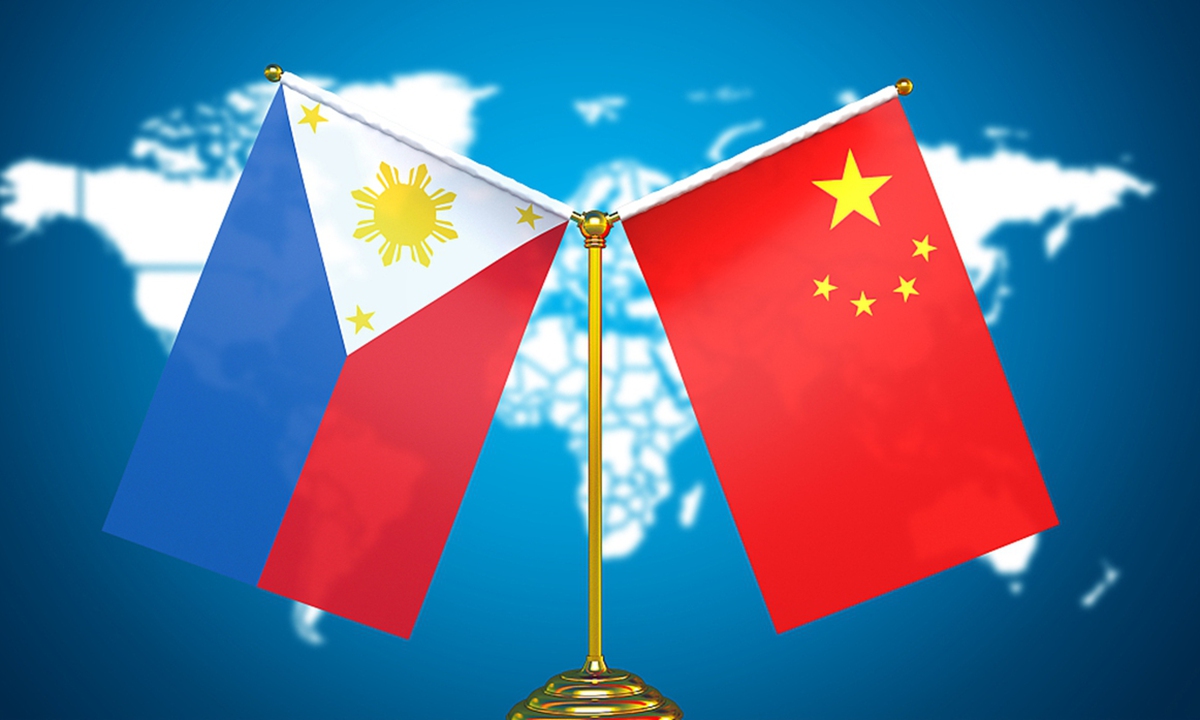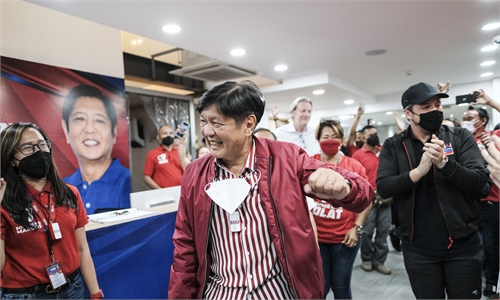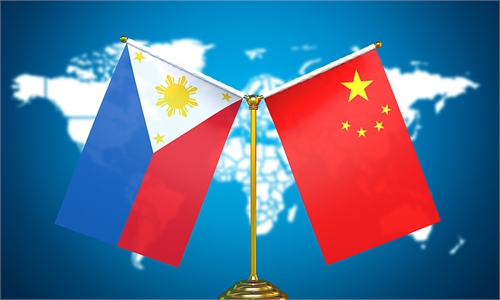
china philippines
During his visit to the Philippines, Chinese State Councilor and Foreign Minister Wang Yi hailed China and the Philippines would usher in a "golden era" of ties as China is willing to deepen cooperation with the Philippines in various fields.
Experts said that after the past six years of nurturing and improving ties, the friendship between the two countries is now at a new high, where they are ready to explore the huge potential of collaboration.
Against the backdrop of the US trying hard to push Southeast Asian countries to encircle China, Chinese observers are confident the new Philippines government has the wisdom to know what is best for the country and will avoid taking sides between China and the US. They believe a prospering China-Philippines relationship creates a peaceful and beneficiary atmosphere for cooperation between China and all ASEAN members, to offset the negative impact brought along by US isolationism and COVID-19.
Philippines President Ferdinand Marcos Jr. tweeted on Wednesday after meeting with Wang that "I am grateful to Minister Wang Yi for extending the message of congratulations and support from President Xi Jinping. We also discussed agriculture, infrastructure, energy, and our commitment to maintaining the strong relationship between our peoples in the coming years."
When meeting with Wang, Marcos, Jr. said that the Philippines upholds independent diplomacy, and stick to one-China principle. China is not only neighbor of the Philippines, but also friends and partners, the friendly relations between the two countries should be strengthened, said the Philippines President.
"South China Sea is not the mainstream of bilateral relation, and should not stand in the way of bilateral relation," he said.
Wang said that the bilateral relation is at a new start, and China is willing to be a good neighbor and partner of Philippines, and elevate bilateral cooperation and start a "golden era" of bilateral relations.
Wang also met with Philippine's Vice President Sara Duterte, Foreign Secretary Enrique Manalo, and National Security Adviser Clarita Carlos.
When meeting with Philippine National Security Adviser Clarita Carlos, Wang said that with joint efforts from the two sides, the China-Phillipines relations have witnessed positive turnaround, improvement and upgrading over the past six years.
The election of Ferdinand Romualdez Marcos as the new Philippine president has turned over a new leaf in the China-Philippines ties as the people of the two countries have a high expectation on the future development of bilateral relations, he noted.
Wang Yi is the first foreign minister to be received by the new Philippine government. Last week, Chinese Vice President Wang Qishan, serving as Xi's special representative, attended the inauguration of Marcos Jr. as the 17th president of the Philippines.
Relations between the two countries are turning a new page, and this means China and the Philippines are going to have upgraded partnership and explore wider and deeper cooperation in areas such as the economy, trade, investment and other areas, Chen Xiangmiao, an assistant research fellow at the National Institute for South China Sea Studies, told the Global Times on Wednesday.
After hitting bumpy road under the rein of former President Benigno Aquino III, China-Philippines relations revived and prospered under the administration of former Philippine president Rodrigo Duterte, said Chen, believing that after those years' nurturing, the relationship is ready to be upgraded to a new level.
At a news briefing on Tuesday, Marcos Jr. said that he wants his country's relationship with China to go beyond disputes over parts of the South China.
"Let's add to that. Let's have cultural exchanges, educational exchanges and even military, if that will be useful. In the private sector, joint ventures have also been there. The more we do that, the more it will help resolve the issue," he said at the press briefing.
Chinese Ambassador to the Philippines Huang Xilian said on Facebook on Tuesday there is another milestone for Philippine-China G2G cooperation as China and the Philippines signed the commercial contract of the Consulting Services for the Conduct of Detailed Engineering Design and Construction Supervision of the Davao River Bridge.
The China Aid Localized Project for Davao River Bridge (Bucana Bridge), located at the estuary of the Davao River in Davao city, is a dual two-lane bridge with a length of around 1,340 meters. When completed, it will alleviate east-west traffic congestion in the coastal areas of the city and divert about 35,000 vehicles every day, improve travel efficiency and help boost the rapid development of the local economy. It is estimated that 300 to 500 local people will be employed during the peak construction period.
In fact, China's investment in the Philippines is concentrated on infrastructure projects, which means there is huge potential for future opportunities in areas such as agriculture and healthcare, said Chen, noting that since the two sides already have put disputes surrounding the South China Sea under better control, it is also possible for Beijing and Manila to negotiate on oil and gas exploitation and fisheries.
When talking about military cooperation, Chen said that although the Philippines is a strong ally of the US in Southeast Asia, it does not deter it from conducting military cooperation with China. US military collaboration with the Philippines is mostly in traditional areas, while China's cooperation with the country is in non-traditional fields, said Chen.
Beijing and Manila's cooperation on security focuses mainly on safeguarding maritime security, yet in the future, Chen said the two countries could work together to crackdown on drug-related crimes, trafficking and combat with regional extremist forces.
In 2017, China handed over batches of armaments, including rifles, ammunition and sniper scopes to help the Philippines fight terrorism.
A broader significance
US President Joe Biden extended an invitation for Marcos Jr. to visit the US less than a week after the latter's inauguration, , the Philippines News Agency reported on Sunday.
Experts see Biden's move as a way to win over its important ally as the Biden administration has hastened the pace of grouping with other Asia-Pacific countries to contain China. On the other hand, the US is also on edge to see where the new Philippines government stands on its relations with China and with the US.
Around the time Marcos Jr. took office, US media published a slew of articles focusing on what stance the Philippines' new president will take when being placed in the middle of the contest between Beijing and Washington. In an article published on Wednesday, Associated Press said that Marcos Jr.'s Tuesday remarks were playing a "balancing act."
Experts are confident the Philippines' new government has the wisdom to make choices that would turn out to be the best for the country. Marcos' top priority is to boost the domestic economy and improve people's livelihoods. He will not randomly take sides between China and the US but will take a stance which can best serve Philippine's national interests and promote industrialization and modernization, Xu Liping, a research fellow on Southeast Asian studies at the Chinese Academy of Social Sciences in Beijing, told the Global Times on Wednesday.
The Philippines, as well as other ASEAN members, is facing multiple challenges brought about by the COVID-19 pandemic, the Russia-Ukraine crisis and the US-led Western anti-Russia sanctions, which have deeply interrupted global supply chains, markets and the economic order, said experts.
The US is trying to further its influence in the Asia-Pacific region by instigating conflicts and tensions, as Washington wants to engage in a great power competition against Beijing and has attempted, by using its regional allies, to instigate bloc-to-bloc confrontation in the region.
So ASEAN, which prioritizes economic development, is now facing serious challenges and desperately needs the certainty, confidence and protection for the members' economies. This will ensure that China-ASEAN ties are even closer because both parties share a consensus over development and multilateralism, and the region has strong confidence in China's development and clear understanding of China's national strength, analysts said.
ASEAN remains China's largest trade partner, accounting for 14.6 percent of China's total foreign trade in the first four months of 2022, with the EU and the US ranking second and third, according to customs statistics released in May, the latest data available.
"Stable and positive China-Philippines relations also inject momentum to development of relations between China and all other ASEAN members. The two countries' contribution to regional integration, cooperation in various fields and maritime stability creates a peaceful and beneficiary atmosphere for the whole region," Chen said.


